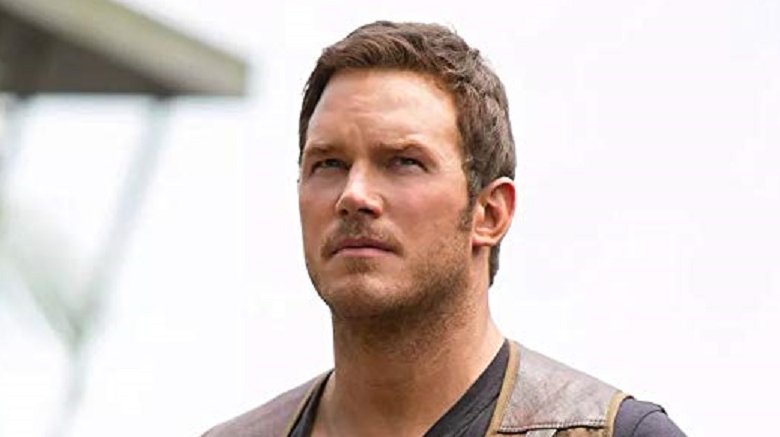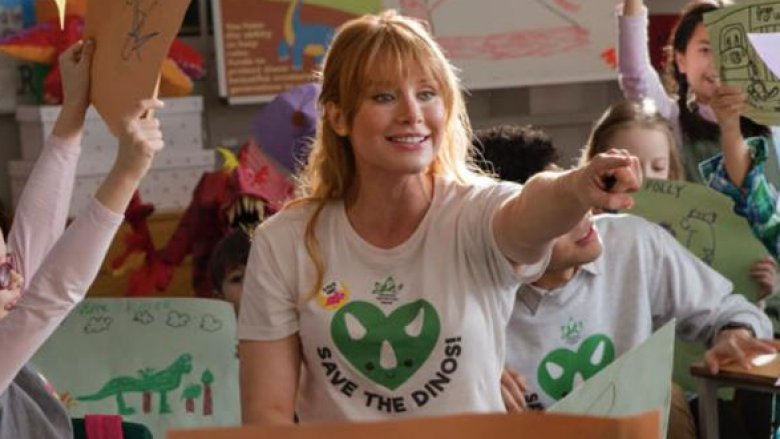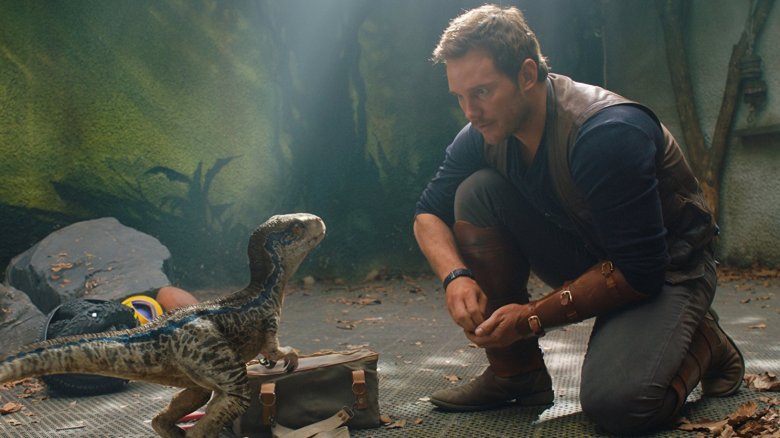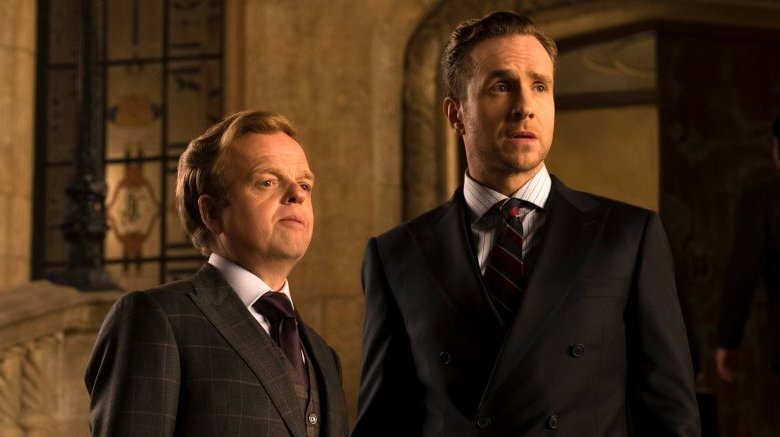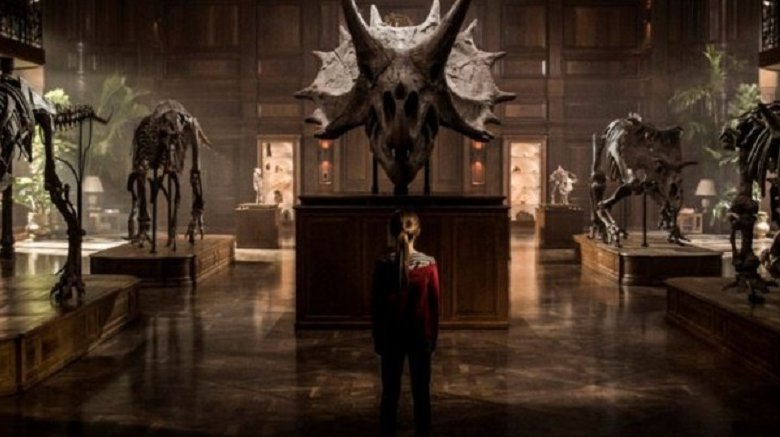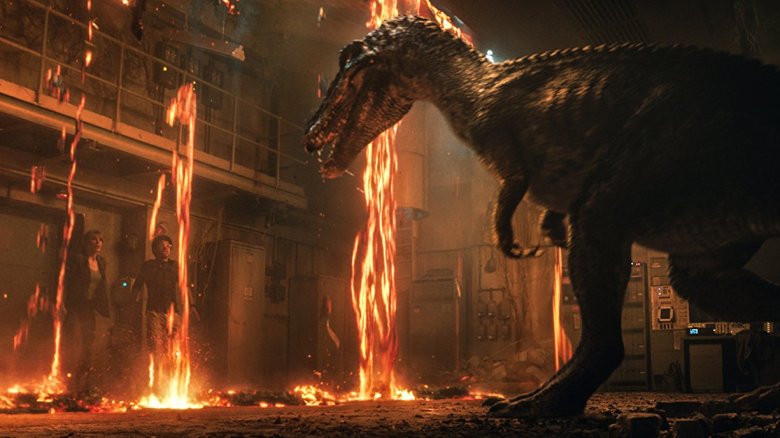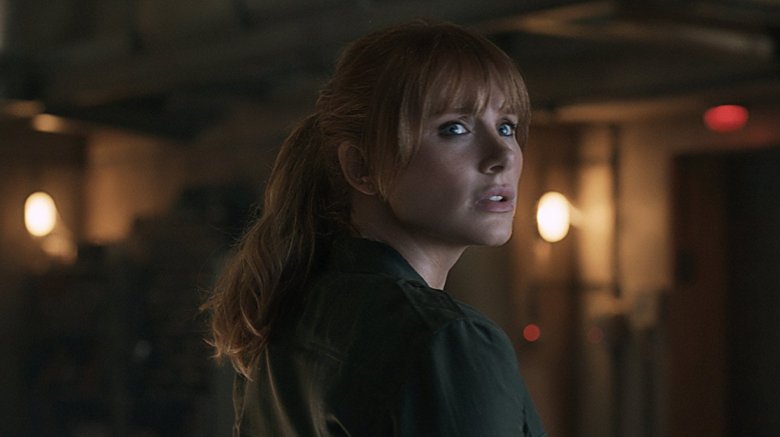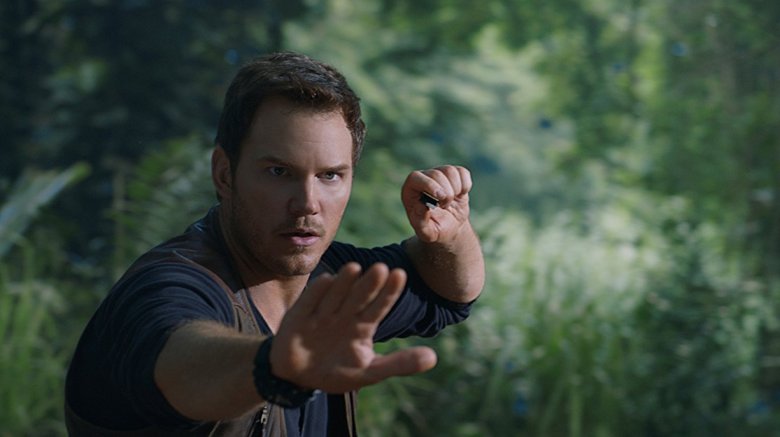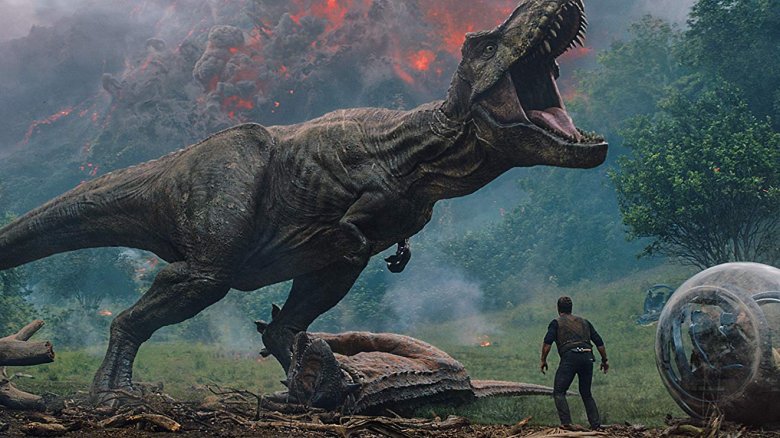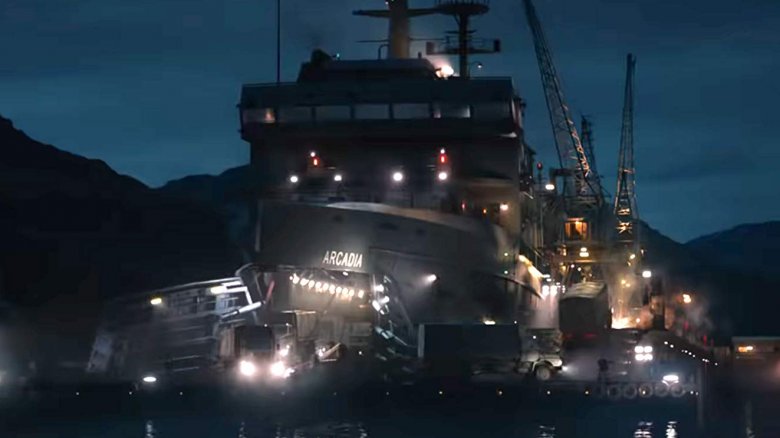What Went Wrong With Jurassic World: Fallen Kingdom
Jurassic World: Fallen Kingdom grossed well over a billion dollars at the box office, with more than $400 million of that coming from domestic ticket sales alone. Check out the reviews from audiences and critics, though, and you'd be hard pressed to find anyone who really thinks it merited that much moolah.
Whereas Jurassic World was praised for reviving the franchise from extinction, its sequel could hardly be said to offer anything original to the series. With its derivative plot, the many moments of incomprehensibility, and some serious structural problems that would make post-volcano Isla Nublar look sturdy by comparison, Jurassic World: Fallen Kingdom was a financial success, but a total mess.
With a third installment on the way thanks to that boatload of loot, let's hope the filmmakers can learn from the mistakes that Fallen Kingdom made and deliver something a little fresher from the newly-expanded dino-kingdom next time. Let's take a look back at where the movie went so wrong in hopes that Jurassic World 3 might avoid the same issues.
The set-up was bogus
In the beginning of Jurassic World: Fallen Kingdom, we learn that despite her many brushes with death (for herself and her young nephews, no less) on the island, Claire Dearing (Bryce Dallas Howard) has somehow become a leading advocate for a dinosaur protection organization that's hellbent on rescuing the same animals that snapped so many bones in the first film. It's a way to keep her in a cushy leadership position — and her signature pumps, of course — but it's an odd career choice for the previously uncaring Claire to make.
That's not even the ridiculous part, though. What rings especially untrue is the timing of her newfound passion. She and her team are working the phones to get a meeting with a politician who might be swung to vote in favor of the Dinosaur Protection Group's agenda, but all of that enthusiasm seems for naught as the effort is quickly denied by the Senate. As this drawn-out testimony carries on — from Ian Malcolm (Jeff Goldblum) and others — the countdown clock on the dinosaurs' survival is winding down way too quickly for the pace of all of this bureaucracy. The whole narrative was clearly meant to be some kind of metaphor for climate change, but the breakneck speed of the first act renders it rather incomprehensible.
It struggled to incorporate its A-lister
It was eyeroll-worthy enough when Owen Grady (Chris Pratt) arrived as the embodiment of so many tropes in Jurassic World — the no-fuss motorcycle-building bro living alone is pretty well-tread territory — but at least then he was a solid bit of brass on the park field. When Fallen Kingdom took it a step further and had him hand-crafting a house so he could be a true burly mountain man, though, it was downright laughable. Here, he's painted as a genius animal behaviorist who has single-handedly revolutionized dino-science, and yet he looks, acts, and even thinks like some low-rent hipster wannabe.
Bringing back the popular stars for movie two was essential, though. Regardless of how generic the set-up for their reintroduction to each other was, the motivation for it all was where things got truly ludicrous. Supposedly she's the only one who can control the cage system, and he's the only one out of all seven billion of us on the planet who can possibly track down and capture Blue so that her training can be studied and replicated. Sure, others have been able to bring back lifeforms that have been gone for millions upon millions of years, but Owen is the special one. Predictably, he's talked into flying back to the island after much ado and has to brave the unstable volcano that threatens to wipe out all life in sight as soon as they set foot upon it. That makes total sense.
The villain stuff was pure nonsense
The entire subplot surrounding Eli Mills (Rafe Spall) breaking bad against the unsuspecting Lockwood family is also far too absurd to endure. Somehow, audiences are expected to swallow the story that this man has been given unlimited access to matters of his employer's estate, and is thus able to oversee production of a super-secret underground basement that houses a whole gaggle of living, breathing dinosaurs. Then, we're to believe he's been able to round up all these creatures with the might of a militia that might as well have come from a Cracker Jack box as he directs the in-house scientists to help him fashion a fancy new dino war machine that he plans to sell to foreign powers (for a bargain, no less). And then when all that is already done, he needs to kill his benefactor to host a party at the manor. What?
Each one of these many moving parts comes together in perfect synchronicity so that this man can host a Sotheby's-style dino-auction mere days after the island goes boom, and somehow no one has uttered a peep about this maniacal gathering of one-percenters to his ailing boss, the authorities, or even the press. That said, watching all those dinos unleashed on those posh ne'er-do-wells is probably the most riveting part of the whole movie, so maybe it's a good thing they forced this plot-line to fit.
The cloning subplot served very little purpose
For all the contrived elements of Fallen Kingdom, the subplot between little Maisie (Isabella Sermon) and her "grandpa" Benjamin (James Cromwell) was probably the most unnecessary. She was likely brought into the story to satisfy the requisite Owen-and-Claire-protect-kids element. Apart from one cool shot of the Indoraptor's shadow creeping through her bedroom, however, none of that landed very well.
It might've been fine enough if she was just the orphaned and isolated granddaughter who got caught in the middle of the villain's subterfuge, but instead, the movie brings in a tertiary plotline about her being a clone of, rather than the daughter of, her late "mother." Clearly, the filmmakers wanted to introduce the concept of human cloning as a part of this technologically-advanced society, but who is surprised by that development? This plot point really served no purpose to the movie, other than to irritate everyone with skepticism about her never getting a look at all those pictures her "grandfather" had of her "mom." The entire arc could have (and should have) been edited out to save everyone time and frustration. She didn't need to be a clone to have sympathy for the dinosaurs. She could've just as easily been a kid who didn't want to see the cool dinos suffocate to death in her basement and reached for a button, because that's the kind of thing kids do.
The escape scenes were way too implausible
Half the fun of Jurassic Park was seeing the creative measures people took to flee all those toothy attackers, but Jurassic World: Fallen Kingdom relies way too heavily on its viewers' suspension of disbelief, especially in the litany of escape scenes. In one scene, Owen crawls his way out of a lava creep that's inches away from him even though he's been nearly paralyzed by a nerve agent. Then, he manages to flee on foot without getting trampled by a herd of frightened dinosaurs, and then he goes and shoots Claire an escape from her death-bubble car under water. If that's not crazy enough, they then proceed to launch a cargo truck off the dock just in time to catch the fleeing barge mere seconds before everything on the island is flayed by a roaring inferno.
It doesn't end there. Later, they manage to draw blood from a snoozing T-rex and make it out of the thing's cage alive, then they somehow transfuse that blood into Blue without anyone incurring the wrath of the raptor (despite Owen allegedly being the only Blue-whisperer in the world). They also manage to hide out behind a statue from another dino-on-the-prowl, and then a big moment of Blue ex machina on the rooftop saves them from certain death by way of Indoraptor bite. Even for a movie series that banks on making the utterly impossible seem real, the escapes are way too untenable.
It's completely disjointed
In addition to certain pacing and plot problems, Jurassic World: Fallen Kingdom also suffers from a bad bone structure. Its predecessors mostly stuck to one central locale — namely, an island filled with dinosaurs. This movie only seems to return to the island for the sake of tradition before abandoning the dinosaur epicenter altogether and forevermore.
As a result of the dizzying location shift from the exploding mountain to the dreary mansion, the movie has the feel of very distinct segments for the first time in the franchise. Other installments of the Jurassic Park/Jurassic World series might've become formulaic and trite at times, but they never just outright abandoned the lush locale of their namesake like this. And the consequence of lifting everyone out of the island and into a pseudo-relatable environment (who doesn't have a full-on library and priceless artifacts in their foyer?) is that it feels like several different movies mashed together into one, and none of them are very good.
It fails to court nostalgia
Jurassic World may not have been the most mind-blowing cinematic experience to ever happen. What it did do right, though, was to widen the dino theme park concept, boost the animal selection, modernize the setting and equipment, and drum up some good old-fashioned throwback appeal for fans of the original with brief visits to familiar places from the original movie. Scenes like the discovery of the abandoned visitor center or the revival of the original park's jeep made us feel like it was 1993 all over again.
Unfortunately, despite some rather obvious efforts to do the same, Jurassic World: Fallen Kingdom was not quite so effective at transporting everyone back to the feel of the original. Moments like that sweeping, lingering shot of the island or the Easter egg-style dino-in-a-mirror gag or even the bit with Owen calming Blue down with his palm are meant to evoke some kind of pit-of-the-stomach nostalgia for the prior films. However, all of the aforementioned plot problems tend to undermine Fallen Kingdom's ability to drum up that kind of reminiscence.
It uses the T-rex machina trend again
The Tyrannosaurus rex's role as unlikely savior dates all the way back to the first film, when the beast somehow decided to take a stroll in the museum and rescue our quartet of heroes from the raptors in Jurassic Park. The concept also inspired one of the most groan-worthy moments in Jurassic World, as Claire recruited the toothy T-rex to fight the Indominus and had to lead her on a foot chase while wearing heels. It was both uninspired and difficult to believe.
So, when Jurassic World: Fallen Kingdom also brought back Rexy as a convenient people-saver, it was the definition of overkill. Instead of fleeing for her own life as the island turned to ash, the T-rex sees Owen, Claire and Franklin (Justice Smith) facing down a Carnotaurus and decides to intervene — not because she wants to fight for a quick bite of human en route to the exit, but because she just wants to save them and move on. This is the same Rexy that once pinned a pair of children beneath a jeep and gnawed on a lawyer after snatching him right off the potty. She was introduced to us as a force of unthinkable devastation, and now she's been fully reduced to a simple plot device to save our heroes when they're written into a corner. Talk about a fallen kingdom.
It's just very derivative
All of Jurassic World: Fallen Kingdom's efforts to capture the spirit of its predecessors result in a film that feels largely derivative. Several points of the movie draw directly from the events of the previous installments, while others are similar enough that one might think the last four scripts were tossed into a blender, and this is what resulted.
The desire to weaponize the raptors, for example, was hinted at in Jurassic World and becomes a cartoonish plot line in Fallen Kingdom — rather than the military-industrial complex getting in on the action, it's some glorified butler running a shadow dino-sales ring. The transportation of the animals by ship to the mainland is also directly reminiscent of the last leg of The Lost World: Jurassic Park, when the T-rex ended up hitching a ride to San Diego. Even the return of Ian Malcolm (Jeff Goldblum) featured him prattling off similarly grave warnings about mother nature's wrath as he did before. In short, other than the bookending plot points of destroying the island itself and later freeing the animals to roam around us two-legged types, the movie was largely just a humdrum rehash of everything that came before it.
